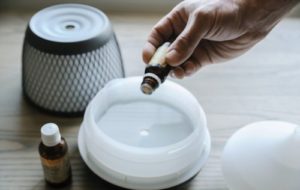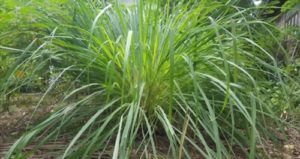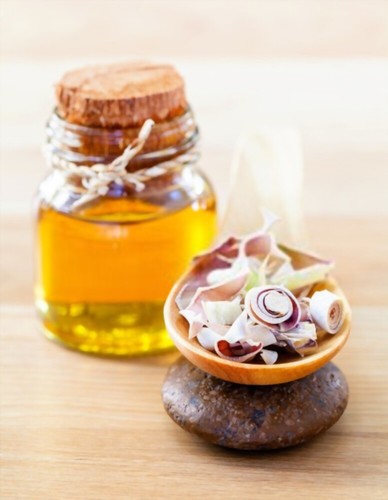 LEMONGRASS OIL PRODUCT DESCRIPTION
LEMONGRASS OIL PRODUCT DESCRIPTION
Lemongrass has been used for thousands of years throughout Asia and Africa for both cooking and its therapeutic properties. The commercial distillation of lemongrass oil for export is believed to have began in the 17th century, within the perfume industry, when poor sanitation and hygienic conditions dictated that the rich annoint themselves with scented oils. Lemongrass is reputed to have been popular with those who could afford this imported oil with its sunny, fresh, and lemony aroma. It was traditionally used to treat fever, muscle spasms and aches, headaches, stomach ache, and cough. In some cultures lemongrass is known as “fever grass”, due to its ability to reduce fever.
Lemongrass oil is derived from the fresh or partly dried lemongrass leaves by way of steam distillation. The oil is said to have started to become really popular as news of its therapeutic abilities spread, following research by a sri lankan researcher called J.F. Jovit in 1905, and today it is one of the most popular essential oils in the world. Lemongrass oil has a myriad of uses, ranging from therapeutic and odorous to cosmetic. So what exactly is lemongrass oil good for, and how do you use it?
HOW TO USE LEMONGRASS OIL
The therapeutic properties of natural lemongrass oil can be administered by way of a diffuser, vaporiser, topical application, or as a massage..
LEMONGRASS OIL USES AND BENEFITS
 Lemongrass Oil Diffuser Benefits:
Lemongrass Oil Diffuser Benefits:
- Diffused, lemongrass oil refreshes and renews the body and mind. The earthy lemony fragrance uplifts a negative mood to prevent depression, and relieve stress, anxiety, irritability, nervousness and lethargy. It strengthens the mind and boosts confidence and self-esteem.
- Lemongrass oil has a sedative effect, relieving tension and promoting calm and is a perfect remedy to relieve insomnia.
- Are you aware that lemongrass oil is perfect for dispelling the symptoms of a cold, flu, sinus infection and other respiratory ailments? It has antihistamine properties to prevent sneezing and nasal congestion, combats a fever, relieves dizziness and fatigue, allays the pain and pressure of a sinus headache, soothes aching joints, and eliminates harmful bacteria. For optimum results use in a vaporiser (or add a few drops to some hot water in a bowl, cover your head with a towel, lean over the bowl, and breathe in the steam).
- Natural lemongrass oil increases perspiration, and acts as a detoxifying agent by expelling body toxins through sweating.
- A natural perfume and non-toxic air-freshener, the gentle aroma of lemongrass oil creates a relaxing environment, eliminating unpleasant odours and air-borne pathogens.
- The aroma of lemongrass oil is known to provide relief from nausea.
- Lemongrass oil has analgesic properties and may help to relieve headaches and migraine.
- As an effective natural insect repellent, lemongrass oil can repel mosquitoes, flies, and other bugs.
 Lemongrass Oil Topical Application Benefits:
Lemongrass Oil Topical Application Benefits:
Lemongrass oil benefits for the skin:
- With strong antimicrobial and astringent properties, lemongrass oil helps to achieve a glowing, even complexion. It cleanses the pores, removes impurities, tightens and tones the skin, strengthens the skin tissue, and reduces acne and redness. This elixir for the skin has antioxidant properties to neutralise damaging free radicals. Add a few drops of lemongrass oil to your normal moisturiser or dilute with a carrier oil for glowing, evenly toned skin.
- Natural lemongrass oil has antifungal properties for the elimination of fungal infections, and is known to prohibit the candida species. Application of this oil to infected areas can relieve athlete’s foot, plus nail and skin fungal infections.
- Lemongrass oil acts as an antiseptic to prevent wounds and burns becoming infected, and supports wound healing.
Lemongrass oil benefits for the hair and scalp:
- Lemongrass oil can bring relief to an itchy, irritated scalp. It can relieve dandruff, in addition to reducing oiliness of the scalp.
- Massaging the scalp with diluted lemongrass oil (or adding to shampoo or conditioner) can nourish and strengthen the hair follicles, promoting growth, reducing hair fall, and leaving the hair fresh and shiny.
 Lemongrass Oil Massage Benefits:
Lemongrass Oil Massage Benefits:
- When diluted with a carrier oil, lemongrass oil can relieve aching muscle and joint pains caused by overexertion through exercise, or due to arthritis. It reduces inflammation and can slow the flow of blow by contracting blood vessels. A lemongrass oil massage will also help to eliminate excess fluids and toxins.
- Relieve a tension headache by massaging lemongrass oil into the neck and temples.
- A lemongrass oil massage tones and purifies the skin, and is acclaimed for its ability to diminish the appearance of cellulite, in addition to stretch marks and scars.
 Additional Lemongrass Oil Applications:
Additional Lemongrass Oil Applications:
- Dilute lemongrass oil in some water and rub or spritz onto the skin as a natural chemical-free insect repellent to keep mosquitoes and other bugs away.
- Add some lemongrass oil to a warm bath to soothe away aches and pains, and help the body to eliminate toxins and excess fluids.
- Lemongrass oil is a natural and effective deodorant. It prevents the development of bacteria and removes and deters unpleasant odours, and is particularly recommended for the feet where it can help to regulate excessive sweating.
- Make a hot or cold compress to relieve aches and pains by soaking a cloth in water, adding some lemongrass oil, and then applying to the desired area.
- Lemongrass oil is perfect for beard care, nourishing and conditioning both the beard and the skin underneath, eliminating beardruff, itching or irritation, and promoting growth. Leaves the facial hair feeling soft and manageable.
 PLANT DESCRIPTION
PLANT DESCRIPTION
Lemongrass, botanical name Cymbopogon schoenanthus, is also known as camel grass, camel’s hay, fever grass, geranium grass, barbed wire grass, silky heads and West Indian lemon grass, to name just a few, is a herbal plant of Southern Asia and Northern Africa descent, belonging to the Poaceae family. It grows in clumps of stiff grass, up to 2 metres tall, and has long fibrous stalks with a lemony scent. It is used for culinary purposes, made into a herbal tea (see https://nefertiti-eg.com/shop/herbs/lemongrass-tea/), or the oil extracted and commonly used as a fragrance or tonic in cosmetic and personal care products such as shampoos, conditioners, acne and anti-ageing treatments, exfoliants, bath oils, soaps, sprays and moisturisers.
 CHEMISTRY OF LEMONGRASS OIL & THEIR PROPERTIES
CHEMISTRY OF LEMONGRASS OIL & THEIR PROPERTIES
The main chemical constituents of lemongrass oil are:
- Myrcene – analgesic, antibiotic, anti-inflammatory, antimutagenic, sedative
- Citral – antioxidant, antiseptic, antiviral
- Citronellal – antifungal, antimicrobial, antiviral, sedative
- Geranyl Acetate – anti-inflammatory, antifungal, antimicrobial
- Nerol – antidepressant, anti-inflammatory, antioxidant, sedative
- Geraniol – analgesic, antibacterial, antioxidant, antiseptic
- Neral – anti-inflammatory, anti-nociceptive
- Limonene – antioxidant, appetite suppressant, detoxicant, digestive
SOURCING LEMONGRASS OIL
When searching for a natural oil or essential oil, it is always best to look for an oil which has been manufactured from start to finish with one souce, thus ensuring its integrity. All natural oils should be collaborated with certification.
If you would like to add lemongrass oil to your oil collection, look no further than Nefertiti for natural oils and herbs: https://nefertiti-eg.com/shop/essential-oils/lemongrass-oil/
Nefertiti uses best practises, natural fertilizers only, and their unique experience, to produce the best plants for their exclusive use, from their own farm in Al Fayoum, one of the richest agricultural regions in Egypt. The oils are extracted in their own factory, using the environmentally friendly fashion of modern cold press technology or steam distillation, using no other solvents, and ensuring a constant supply of optimum high quality oils.
All natural oils produced using the cold press method are done under the control of the Egyptian State and the Egyptian Ministry of Health. In recognition of their never-ending strive for quality, all of the products are certified. Certifications obtained include: COA certificates and ISO awards in Quality Management System, Environmental management system, Occupational Health & Safety, Food Safety Management System, to name just a few.
OILS THAT BLEND WELL WITH LEMONGRASS OIL
 Lemongrass blends well with all citrus oils, plus rosemary, lavender, eucalyptus, frankincense and peppermint.
Lemongrass blends well with all citrus oils, plus rosemary, lavender, eucalyptus, frankincense and peppermint.
CONTRAINDICATIONS
Lemongrass oil should never be applied directly to the skin due to its high concentration and must be diluted with a carrier oil.
If applied topically, avoid direct sun exposure as lemongrass oil may make the skin photosensitive.
Avoid use during pregnancy and breast-feeding.
